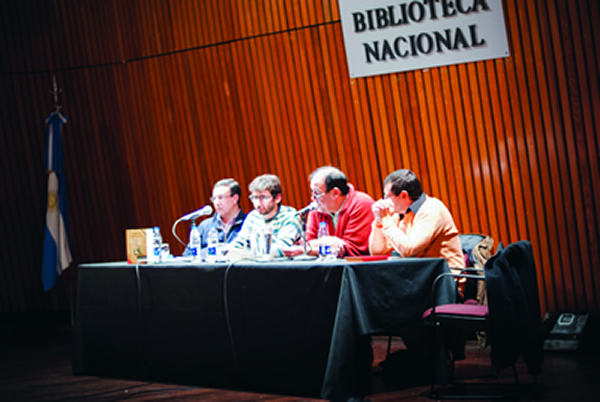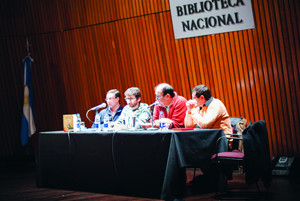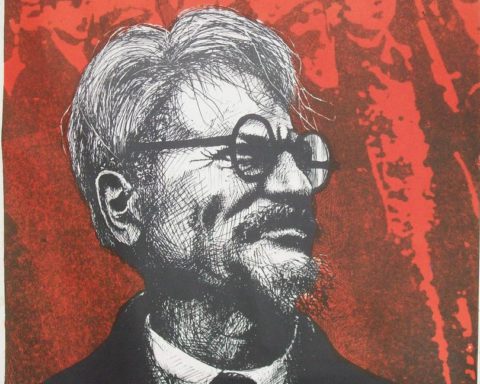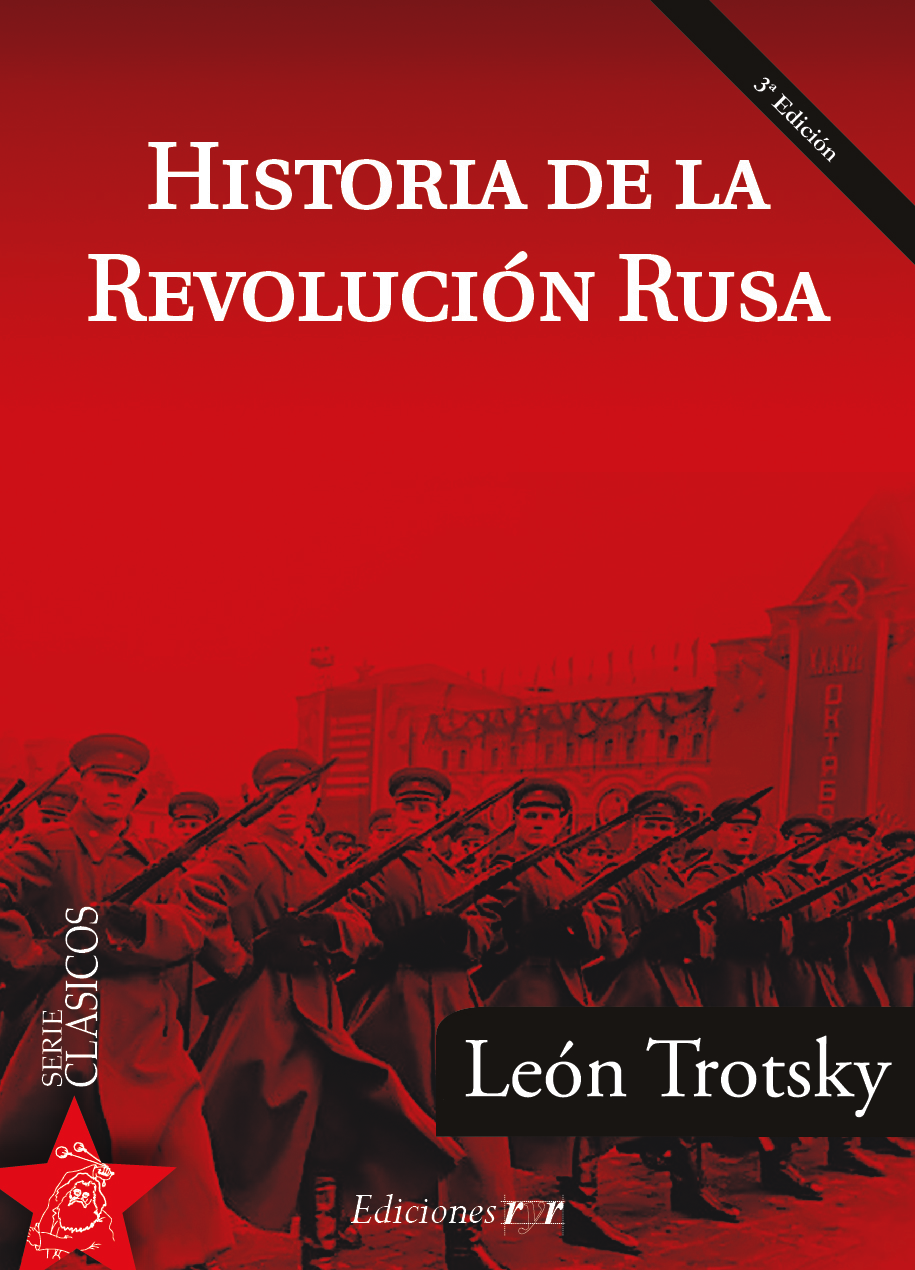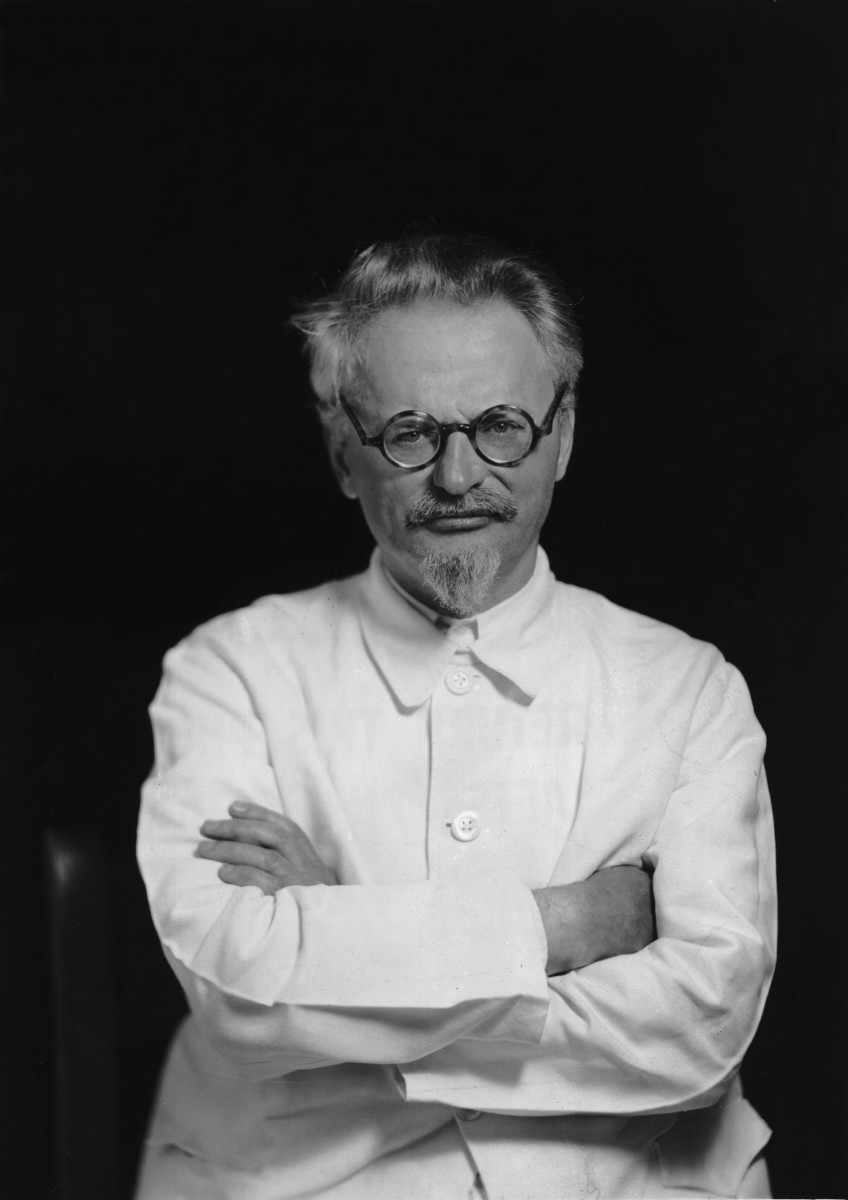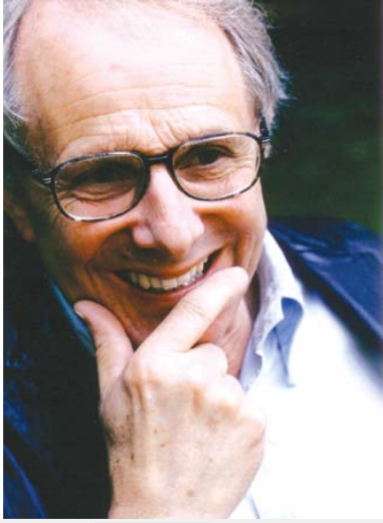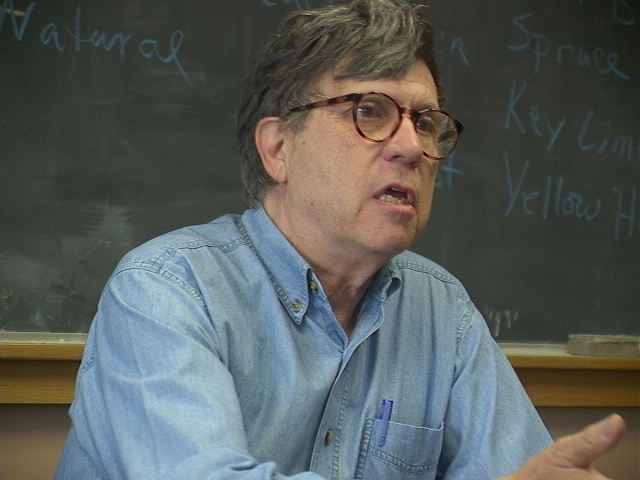These are fragments of the presentation of our edition of Literature and Revolution which was attended by the translator of the book, Alejandro Gonzalez, as well as by Miguel Vedda and Eduardo Sartelli. Horacio González was not able to make it to the presentation due to health problems but he sent in his comments which are reproduced below.
Horacio González: Due to an error that has occurred which has led me to become extensively preoccupied with questions related to my health, I had thought that the presentation of Literature and Revolution was not today, and I consequently became entangled with other commitments. I just became aware, after reading the paper, of the presentation at the National Library and I regret not being able to make but, at the very least, I want to mention that I have read a great part of the book and that it reminded of the older version by Ramos. This new version is both fascinating and incomparably superior.
I read with great surprise both the discussion surrounding the magnitude of the debate with the Proletkult as well as the discussion surrounding the dense knots that Russian intellectuals forged to acquiesce to the demands of the Soviet Union. Lastly, I was enticed by Trotsky’s deep anthropological reflections and expressions.
Furthermore, while I found Trotsky’s reflections on The Divine Comedy to be quite profound and wise, I found his optimism over the technical revolution to be more debatable. It is this optimism that also carried him to condemn the Eiffel tower and to construct an artistic utopia that fused techne and art that is worth discussing today once again. It is through these tensions that the 20th century traversed, with all of its vanguards, political failures, and great texts that we still read today.
Eduardo Sartelli: Why did we publish Literature and Revolution? Well, to start off, let me say that as part of the Argentinean revolutionary left, Razón y Revolución has sustained a fairly broad debate, especially with Trotskyists, relating to the role of the arts and the intellectual in revolutionary processes. A good part of this discussion has taken as its center of gravity positions taken by Trotsky, in particular those recorded in his text Literature and Revolution. Obviously the first thing one is surprised by, if you will, is that Trotsky’s position on these matters, in a strict sense, does not exist. What we knew, until now, from Literature and Revolution is that it is merely a fragment of the total work (it constitutes the first part of the text) and that it contained many difficulties related to the process of translation. We also do not know the constellation of texts that Trotsky produced beyond this particular work. The corpus that someone who is interested in dealing with these problems that Trotsky discusses in Literature and Revolution must grapple with is infinitely broader than the current Spanish edition of his work which is merely a fragment of all of this. As we tried to extend the discussion on this end, we came across an offer made by Alejandro González that opened the possibility to re-edit the more complete version of Trotsky’s texts, not only in Spanish, and to be translated directly from the Russian without any other mediations.
A long time went by until we worked on editing the text—five years, in fact. Why? Because we wanted to take the time to write a prologue that was not simply a presentation to the reader to set a of materials, but also help the reader sort out with some success the following problem: in the Trotskyist tradition there is a kind of “Socratic” problem, which entails the mediation between Trotsky, his times, and ours. Similarly, the sophists are seen with the lens of Socrates, which is read through Plato. A similar mediation process occurs with readings of Trotsky. Most discussions of Literature and Revolution relating to the problems of art and literature from a Trotskyist position or those that examine Trotsky’s positions do so only by reading Trotsky. One would be surprised by the number of world-renowned researchers and intellectuals that opine on the problems presented in Trotsky’s books. Consequently, these investigations judge Trotsky’s opponents from that perspective. And it is so that Trotsky becomes the sole actor and narrator. The readings are so naive that, for example, what we think of the Proletkult is precisely what Trotsky said about the matter and not much else. There is actually an enormous debate surrounding the Movement of proletarian culture. I think we are the first to recover that debate. The Stalinists did not defend its importance because the Proletkult was too leftist for Stalin. The Trotskyists did not defend it either because it was too Stalinist for them. Unfortunately the Proletkult did not leave behind any successors. The majority of its protagonists disappeared, were marginalized, and/or ended up being assassinated by Stalin. Moreover, behind the name Proletkult there are three or four different experiences. It first appears tied to the bogdanovian experience, then to bolshevism, and lastly to the artistic vanguards with Mayakovski and the rest of them. Unless one digs deep into the details of these tensions, one cannot understand what it is exactly that Trotsky is discussing, because it is impossible to understand his opponent and consequently with whom Trotsky is debating.
Another issue that arises is that Trotsky is characterized as a prophet that always says the same thing. The work of Alejandro, the work of recompiling the texts, allows us to conduct an archeology of Trotsky’s thought that demonstrates how his thinking contradicts itself: it says one thing and then another; it has two or three aesthetics that are always competing, that run from an extremist rationalism to a revolutionary romanticism.
Trotsky is, like anyone else, an organic thinker that as he thinks, contradicts himself, re-works himself, and also pretends that he is saying the same thing while actually saying something else. In his case the situation is a bit more extreme because he has not had the time to sit down and discuss these problems. In fact, he says this very clearly: “I stopped thinking about these problems in the 1920’s.” By the time he signs the famous manifesto with Breton, it’s already been ten years since he had not thought about these problems. He is a living being, that has the right to contradict himself, given that he is in the midst of tremendous battles and struggles. If Trotsky is a problem, even more problematic are the Trotskyists, who pretend that he is some kind of patron saint that has always said the same thing and that ultimately their task is to reinterpret the texts in a coherent manner when in reality they are not very coherent at all. Trotsky cannot be made coherent because he is not a literary critic, or at least, he has not dedicated himself to become one. He even says so himself: “these are simple notes of a reader.” Obviously as the intelligent person that he was, in the midst of very complex problems, he was not simply making trivial points but we should also not take him as a specialist on the matter. That is, we must not confuse the weight of his political words with the weight of his word on more general topics. Simply because Trotsky led a revolution it does not mean that he can say anything and everything is fine. It is in this manner that a religious reading of Trotsky was constructed which stands in stark contrast with a scientific reading that allows us to understand what it is that he truly said what we find most interesting from there.
And so we took a long time to reconstruct the context in which Trotsky was working in: with who he is in conversation, at what moment, in which way, and so on. In so far as the majority of those Trotsky was engaging with have been politically ostracized or their existence has been phased out we face the problem of not having sincerely understood them. As one reads what Trotsky says of various people, with the kind of sharp cruelty with which he writes, one thinks that he was surrounded by fools that did not truly understand what was at stake until he explained it to them. But in reality they were intellectuals with positions that were quite elaborate and more often than not with arguments that were superior to those made by Trotsky. With this it seems as if the prologue diminishes Trotsky’s stature. But this is why I always insist on making the following point: the biggest stars are those that are capable of being noticed—to be bright enough—in the midst of many other stars.
If we one is able to reconstruct the intensity of the debate, one notices that Trotsky is actually a very bright intellectual, is very well informed, and is someone who has had to deal with a constellation of characters that are not, in any way, mediocre. Because Trotskyists tend to forget this, they tend to reconstruct history as they see fit. For instance, the affirmation that “Trotsky loves the vanguards” is a lie. When one reads what Trotsky wrote on Mayakovski one realizes that its almost as if he had actually not actually read him. Trotsky, due to his formation, disliked the vanguard. As a good Russian, Lenin-style, his thing is realism. In particular, a kind that is very similar to socialist realism. He has shown to care less about what would later become the artistic vanguard of the 20th century such as Meyerhold, Mayakovski and many others. If one were politically honest, independently of how much of a Trotskyist one may be, one would have to say: “what a poor judgment Trotsky made.” Afterwards one may go on to find political reasons for this. Trotsky’s aesthetic judgment would not let him “notice” the 20th century vanguard. In a similar way, there are other absurd affirmations such as “Trotsky claims art must be free to do as it pleases.” This is also a lie. Trotsky was in favor of censoring. In fact, he has told others “You are a bunch of liberals, art must be censored.” In short, there is a certain desire to read Trotsky in such an anti-Stalinist way that he is turned into a bourgeois liberal.
Sidestepping all of these problems and breaking down all of these debates to make them legible to the reader has meant that the process of writing the prologue took us a very long time. What we have produced is, unfortunately, a very long prologue, but one that nonetheless has the virtue of offering much information so that the reader may be well prepared in her reading. And so that the reader has the sensation that what is about to be read can be read from various positions.
Miguel Vedda: There are various reasons to value this edition. For one, it is an edition that was planned to be rigorous as it is translated directly from the original without other mediations. The prologue is very well documented, and the text contains many clarifying notes. This observation can and should attract some attention. After all, what I have mentioned thus far about the text is what should be expected of any critical edition of a text and it should not be thought of as being particularly exceptional. The reality, however, is that the publications of Marxists texts in Spanish tend to not do this.
There are three problems that could be thought of as being quite recurrent in the process of translation. One is the “militant translation.” This is a quite sad idea which makes the case that what is fundamental is to put the text immediately in circulation, given that it must be read urgently. Due to that sense of urgency the task of curating the text before publication is deemed to be quite unimportant. Another problem with Latin American publishing companies is the recurring experience of picking a translator who may know the language of the original text quite well but that may know next to nothing about Marxism. An example of this is seen with the translation of a text that was written originally in English in which the phrase “The long march of Mao” was translated to “El largo marzo de Mao” (“marzo” meaning the month of march in Spanish). There is a third problem that is possibly more ominous than the others that arise with the particular interventions made by the translator on the original text. These are a particular form of censoring that are too frequent and which have to do with the strategies of canonization that Eduardo was referring to and which have been detailed in the prologue. I can provide a quite illustrative example of this that occurred with the Spanish translations of what was called “the aesthetic writings of Marx and Engels.” The edition that was most frequently circulated in German was released in a single volume and its treatment was quite systematic. What the editors did, in a manner that oscillates between religious naivety and criminality, is to extract short passages from the text written by Marx and Engels that corresponded to notably different times and from thereon construct a systematic aesthetic as if they had written a single treatise that went from the universal to the particular. Fortunately today there is a very different context surrounding these problems compared to what transpired then, and there are truly some very good editions of these texts, especially Argentinean ones, at least in comparison to what is being edited in Spain with various texts of the Marxist tradition.
I cannot opine too much about the translation itself, given that I do not know the Russian language. What I can say though is that the impression that the translation gives a Spanish reader is quite optimal. I could also say a few things about the prologue that I find important. First of all, I see a robust commitment to breaking with a tradition of reading Trotsky dogmatically. Let me highlight the word robust because there are certain traditional characteristics of argentine Trotskyism, a tradition that I was part of for many years. My major commitment to a political party was to the MAS (Movement for Socialism) in the 1980’s. This affords me the opportunity to remember various ominous aspects of Trotskyism. Many things have been said about Trotskyism, phrases such as these that have a wide circulation: “two Trotskyists make three factions,” “it is possible that one can leave Trotskyism but Trotskyism will never leave you.” With respect to the latter, let me highlight something I encounter with my Trotskyists friends, which are very intelligent and honest, which is that they both recognize and affirm Trotsky’s fallibility. However, in practice, they never actually question him. Trotsky, according to a kind of reasoning that is proper to the manuals of logic, is human, and therefore, fallible. However, there are no particular enunciations that illustrate his fallibility.
The prologue is very convincing, even though it proclaims to be anti-Trotskyist; happily it is not and thereby endows that expression with a bit of irony. It is Trotskyist not because it picks a given position, but rather because those who wrote it took it upon themselves to extensively read and analyze Trotsky’s work for many years. It is anti-Trotskyist for the fact that it attacks not so much Trotsky himself but a certain caricature of Trotsky which has too wide of a circulation amongst us. It says: “The prologue is a destructive critique of Trotsky’s reputation. More specifically, it is a critique of the caricature of Trotsky produced by the left that necessarily leans on his political action and not on his concrete analysis of the concrete situation and continues to make perpetual references to his sacred texts.” I am reminded of a passage from Sartre’s Search for a Method. He makes a comparison between Marx and the Marxists saying that what defines all of that that comes after Marx, in contrast with his writings, is that the analysis of concrete cases is quite rare. Marx has an impassioned analysis of historical conjunctions that are quite specific, such as the passionate writing recorded in the 18th Brumaire. Normally for Marxists that came after Marx the task was quite straightforward. For them the theoretical problems had already been resolved by theory and all that had to be done from thereon was to apply this theory to a historical conjuncture and basically repeat what we already knew prior to the analysis. The prologue makes the case that these kinds of analyses are totally worthless when it comes to making sense of the present. “It is neither Trotsky, nor Marx, nor Lenin, who can tell us how to act today. They simply cannot. This is our reality. It would be a perversion to ventriloquize these thinkers and to pretend that the dead are alive.”
There is a part of the prologue that pertains to the evaluation of Stalin that will surely give rise to polemics. Because it is very easy to demonize Stalin, it generally excuses many Marxists from the task of actually thinking through and studying the Stalinist period. Two sectors that act the same way when it concerns the evaluation of this period are liberalism and non-Stalinist Marxism. Both consider that it is a period in which basically nothing happened. As an obsessive reader of Lukács I have had to read those observations that say that he always wrote the same thing. I do not know of any period in Lukács life in which he says the same thing. To analyze what he says one would have to read a few thousands of pages. This is a task that requires an intellectual effort that is more easily resolved by simply repeating: “he always says the same thing.”
There are various statements in the prologue that I consider to be important. One of them is the opposition to a very common thesis that makes the case that Stalinism can be explained as a series of “palace intrigues” that took place within the Bolshevik party. Another is a variation of this: the idea that it was a small clique that finally destroyed paradisiacal soviet society. With good judgment, the prologue’s authors try to find a rational explanation, a historical materialist explanation, of the things that they find and as a result end up making polemical statements. I find these to be for the most part acceptable. Some I agree with and some others I do not. One focus of the prologue is to reject the thesis that a “Soviet Thermidor” existed. As if Stalin had somehow frozen the revolution in a heartbeat or as if his politics were “simply” to re-introduce capitalism in Russia. It does not require much reflection to know that both of these conclusions are false, but this fact did not stop these notions from being widely circulated and uncritically accepted.
Another aspect that I find interesting is the mode in which contingency is introduced in the analysis, that is, the role that aleatory processes play in the history of Stalinization of Russia. For instance, when the prologue analyzes the dialectical battles between Lenin and the Proletkult, it points out that Lenin’s victory was not predetermined from the start. Which is to say, the defeat of the Proletkult was the result of a struggle. This analysis animates the prologue and endows it with a sense of excitement. This can be seen in various parts of the prologue, for instance through the struggle with Bogdanov. Or even in the debate between Trotsky and Stalin, that appears not as something that is predetermined from the start but as an evolving process.
I also think that the serious work undertaken in the prologue to understand the Proletkult is important given that it was simply discarded. That is, one knows that it was “bad” and could be easily discarded. In a very persuasive way, though, the prologue is able to demonstrate that the story surrounding the Proletkult is actually much more complex than the phenomena.
Lastly, Trotsky’s image in the prologue is very detailed and polemical. There is an idea that I find to be quite pertinent which is that Trotsky was not a man of the party, that he could not build it as Lenin did or govern it as Stalin did, and that he was a man of the State. I find this argument to be correct. The part that is dedicated to Trotsky’s aesthetic ideas is a bit too brief but the phases and general fundamental characteristics of it are covered well. Trotsky’s aesthetics, despite it being quite heterogeneous, is one that is essentially instrumentalist. He supposes that art serves certain purposes that aim to both illustrate a situation and provide material for agitation. I also agree with the emphasis placed on Trotsky’s realism. That is, I am convinced that Trotsky did not defend the vanguards and that his tastes were more aligned with realism. Also, let me highlight the emphasis on content. Which is to say, that for Trotsky, as for many militants that had a certain taste for literature but were not specialists on the subject, the essential element of art was the content and that is why a certain liberty was given to the form in the sense that it was considered to be of secondary importance. In short, it is a prologue from which it is possible to learn much from and I hope that it is widely read.

